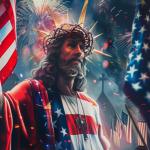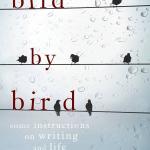In just the past month alone, an unarmed great-grandmother, Marlene Pinnock, was captured on cell phone video being beaten senseless by a state trooper on a California freeway onramp. A Black man, Eric Garner, perished under the restraint of several police officers and in the presence of emergency medical technicians on a sidewalk in a Staten Island, NY neighborhood known as Tompkinsville. And just a few days ago a Black teen, Michael Brown, was shot dead, multiple shots piercing his body, by police under unknown circumstances in a suburb in St. Louis, Missouri. What the hell is going on in law enforcement? Why are people who are trained to deal with combative situations using blunt force—often to the point of death—in cases that do not appear to warrant it?
All of the aforementioned were UNARMED. Why is the first response not to shoot to wound, but rather to shoot to kill? Why aren’t police using tasers, stun guns or bean bag rounds in these situations? Granted, there is a lot of mystery surrounding these unique circumstances…but I am extremely bothered that preservation of human life is apparently low on the tactical strategy list. Comedian and pundit Bill Maher offered his take on this here and here. Maher argues that if you arm the police with military weapons, some members of the police may begin to act as though they are at war. Which begs the question: what exactly is the screening process for those who are armed with military weapons and are patrolling our neighborhoods? Is there any attempt at all to discern possible feelings of contempt for those who do not look like them? It is bad enough that Black and Brown persons must be wary of armed citizens like George Zimmerman, Michael Dunn, John Henry Spooner and Theodore Wafer (who squeezed triggers that ended the lives of seventeen-year-old Trayvon Martin, seventeen-year-old Jordan Davis, thirteen-year-old Darius Simmons, and nineteen-year-old Renisha McBride), we have to worry about heightened police brutality as well? In 2014?
A matter of concern that ranks right up there with our bodily safety is our collective mental
psyche. In the midst of the shooting of Michael Brown, the reportedly unarmed teenager in St. Louis, beloved comedian Robin Williams has died….likely by his own hand. And though I am not averse to remembrances of his comic genius, the collective sorrow and outpourings of grief for him, and the apparent shock that someone so talented, so funny, could ever suffer from depression, I cannot help but wonder where the empathy is for us, the Black and Brown men, women and children who in the past month alone have been bombarded with video images of people who look like us being straddled and pummeled by a man wearing a uniform, of hearing the voice of a Black man under restraint saying clearly that he cannot breathe, and having to hear about yet another brown body lying dead in the street after an encounter with the police? I know it stabs my heart with grief whenever I hear from the people who knew them, cared for them, and loved them…because I have to deal with the knowledge that it could easily have been someone I knew, someone I cared for, someone I loved. How do I/we deal with what I call grief-epistemology…when you KNOW Renisha McBride and Jonathan Ferrell were shot dead for the crime of seeking help after a car accident. When you KNOW that the color of your skin is enough to trigger a violent response from a total stranger. When you KNOW that there are laws that privilege someone having no duty to retreat over your need to inhale and exhale.
I deeply resent not having a formal space to talk about this pain without negative contrast. Even when these deaths receive national attention, seldom do you hear their stories told without media buzz words like “Black on Black crime,” or hear teenage boys being referred to as men, or hear character assessments whose purpose seems to be to justify the use of deadly force, or the oh so subtle language that intimates that black people are predisposed to criminal activity that is often used to explain why there are more Blacks in jail than any other ethnicity. Make no bones about it; pockets of the dominant media have a long history of using coded language and images to play on fear. Think about the countless news stories you’ve seen about crack babies, or sound bites you’ve heard from a talking head who is apparently more concerned about the level of quiet in a particular neighborhood than the person who was killed in the house next door to them, or how many “walk-through” images you have seen of Black and Brown people in handcuffs on their way to court. Now contrast that with the coverage you’ve seen of serial killers who are typically white males. I’m just saying. And for the record, there is no such thing as “Black on Black” crime. People of every hue and ethnicity commit heinous crimes against their own, as far back as Cain and Abel.
Where can we go to deal with these wounds? Is there a cure for repeated exposure to calumny against all manners of Blackness? How can we preserve our self-esteem amid constant reminders that our lives matter less? If ever there was a cause worthy of the attention of the Black church, is this not it? It is my hope that every cleric and layperson will come together with their respective communities to provide that safe space to talk about how much this hurts. I hope that more churches will open their doors beyond Wednesday nights and Sunday mornings to give people a safe space to grieve and talk about their grief. It is my prayer that we not only keep the names of the victims and their families on the altar, but also pray f
or the hands responsible. It is my prayer that we find ways to channel this stress and anxiety out of our bodies in healthy ways. It is my prayer that churches revisit methods of what to do when you encounter the police. It pains me that it is even necessary. It pains me that the persistent devaluation of Black and Brown bodies continues. Let us band together to find ways to channel this pain into decisive action plans. There is too much at stake to remain passive.















